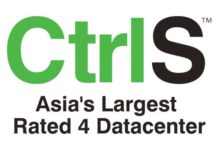It is undisputable that India is in the throes of a significant digital transformation. According to the Ministry of Finance, India currently leads the world in real-time digital payments and UPI accounts for approximately 40% of the transactions, which demonstrates the advancements in digitization. The rapid progress in fintech when combined with health-tech, ecommerce, OTT mediums, etc., has led to increased demands for availability, speed, scalability, and security. This enormous use of data, in turn, requires copious data center infrastructure in the country to adhere to the data requirement.
Data centers present unique challenges for businesses due to their prohibitive costs and maintenance requirements, and businesses are therefore embracing innovative models to simplify processes and lessen the monetary burden. Of the many models being utilized, colocation is one of the most flexible solutions as it allows firms the option to tailor their usage of datacenters according to their requirements, thus lowering costs and introducing greater efficiencies.
Colocation is the deployment of servers, storage systems, and networking tools at a third-party data centre. In addition to the space that is either leased by rack, room, cage, or cabinet, it offers several facilities such as power backup to keep systems continuously running, cooling facilities such as HVAC (Heating, ventilation, and cooling) systems and liquid cooling, high speed internet access and security measures.
Colocation data centres are of various types:
- Retail colocation center: A customer rents space inside a data centre, typically a caged-off section, a rack, or space inside a rack.
- Wholesale colocation center: A wholesale colocation centre caters to large corporations and government entities, providing greater room and isolated infrastructure for businesses.
- Hybrid colocation center: Cloud-based hybrid colocation combines in-house and external data centre services.
Colocation centers offer several benefits, which include the following:
- Cost effectiveness: While building a data centre is expensive and takes several years to set up, renting from a colocation provider is frequently the quicker, less expensive and more hassle-free solution.
- 24X7 security and effective maintenance: Several colocation centers offer maintenance, monitoring, reporting, multiple backup and disaster recovery options and troubleshooting to help prevent potential disasters such as system failures, security breaches and outages. In addition, multiple layers of security, including authorized access and video surveillance and etc, are included as value adds, with colocation.
- Uptime SLAs and connectivity (Service Level Agreements): They provide uptime via SLAs, which can give client organizations a high level of confidence. They provide clients with a wide variety of connectivity options.
- Better operations and scalability: Companies can also replace capital expenditures (CapEx) with a very predictable operational expenses (OpEx) model thanks to colocation. They can also scale rapidly and easily, which is not possible with on-premises choices because it requires months of planning to construct private server rooms and data centres.
Cost efficiency comes from the following aspects:
- Reduced capital and operating expenses: Colocation data centre infrastructure in a third-party facility reduces capital expenditure, freeing up capital for other investments. Colocation facilities offer economies of scale and lower operating costs than individual data centres, allowing for the sharing of resources with other tenants.
- Pay-as-you-go Model: Colocation providers typically offer flexible pricing models that allow you to pay only for the space, power, and cooling resources you need. This pay-as-you-go model allows you to scale your infrastructure up or down as needed, providing cost savings and greater flexibility.
- Access to Expertise and improved uptime: Colocation providers provide skilled professionals to manage data centre infrastructure, reducing labor costs. They offer backup power, cooling, and strong network connections to improve uptime and reduce downtime, which helps save a lot of money.
Overall, colocation of data centres can provide cost savings by reducing capital and operating expenses, offering flexible pricing models, providing access to expertise, and improving uptime.
While colocation is a valid solution contributing towards better operations and cost management, data centre optimization firms provide managed services irrespective of colocation and help businesses with their data management processes, hardware maintenance and improvement in data quality. They offer strong support for a variety of IT hardware, whether housed on site or at a colocation centre.
The future of colocation data centers looks bright and promising, as the demand for data storage, processing, and transfer continues to grow exponentially. Colocation data centers provide businesses with a reliable, secure, and cost-effective solution for managing their IT infrastructure, while also allowing them to scale up or down as needed. They continue to evolve and adapt to the changing needs of businesses and the broader technological landscape thus making it a solid option for businesses.















